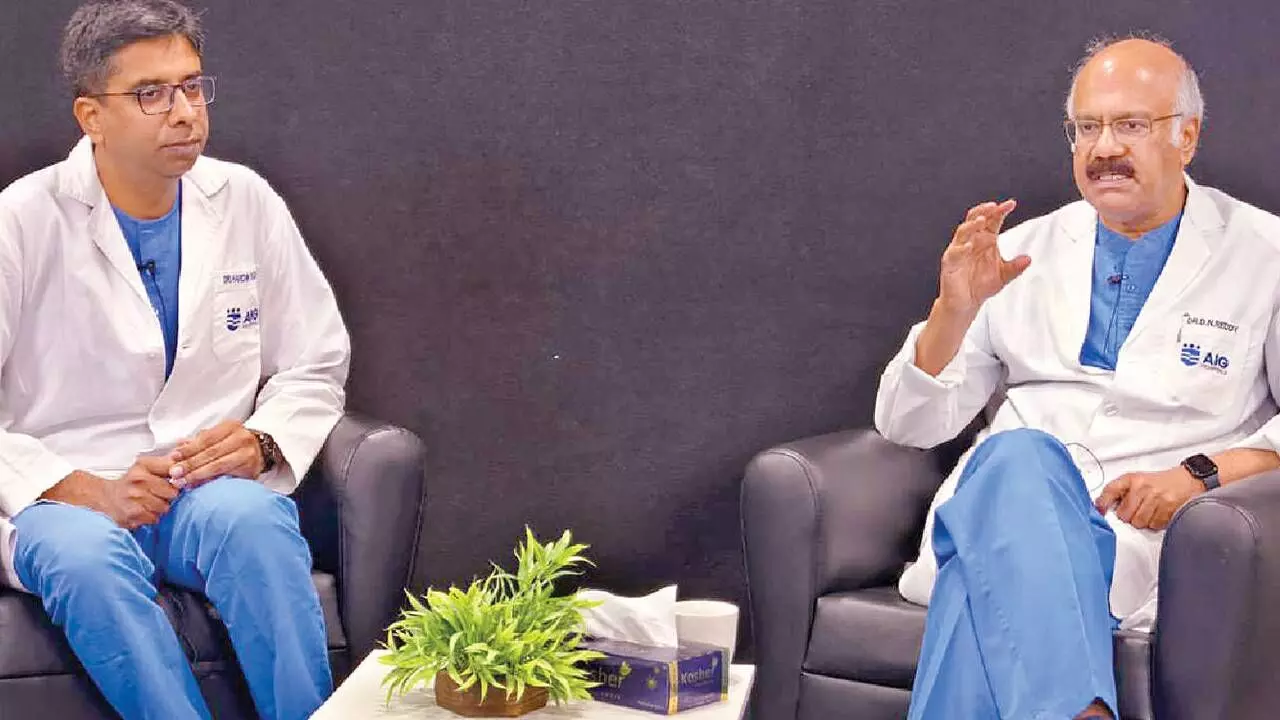India at epicentre of ‘Superbug’ explosion
Lancet study finds 83% patients carrying drug-resistant bacteria
Researchers analysed over 1,200 patients across four nations and discovered alarming levels of critical drug-resistant bacteria in India, including 70.2 per cent with ESBL-producing organisms and 23.5 per cent with carbapenem-resistant strains

Hyderabad: India is facing one of the world’s worst antibiotic resistance crises, with a groundbreaking study published in Lancet eClinicalMedicine revealing that more than eight out of ten Indian patients are carrying multidrug-resistant bacteria.
The international multicentre study — released during Antimicrobial Stewardship Week (Nov 18–25) — found that 83 per cent of Indian patients undergoing a routine endoscopic procedure (ERCP) were carriers of multidrug-resistant organisms (MDROs). This is significantly higher than in other participating countries: 31.5 per cent in Italy, 20.1 per cent in the United States, and 10.8 per cent in the Netherlands.
Researchers analysed over 1,200 patients across four nations and discovered alarming levels of critical drug-resistant bacteria in India, including 70.2 per cent with ESBL-producing organisms and 23.5 per cent with carbapenem-resistant strains — bacteria that do not respond even to last-resort antibiotics.
These infections are harder and costlier to treat, often requiring stronger drugs, prolonged ICU stays, and extended hospitalisation — leading to severe financial strain on patients and families.
What concerns researchers most is that high resistance rates in India persist even after accounting for age, comorbidities, or medical history, indicating a deep-rooted community-level problem driven by widespread misuse of antibiotics, over-the-counter access, incomplete courses, and habitual self-medication.
“This study should ring the loudest alarm bell India has heard on antibiotic resistance,” said Dr D Nageshwar Reddy, Chairman of AIG Hospitals and a co-author. “With over 80 per cent of patients already carrying drug-resistant bacteria, the threat is now in our communities and daily lives. We are staring at a future where simple infections may become untreatable.”
Co-investigator Dr Hardik Rughwani warned that India’s healthcare infrastructure will struggle if the issue goes unaddressed. “We are already seeing longer recovery times, higher complications, and steep rises in treatment costs. If we delay corrective measures, our healthcare system will be overwhelmed,” he said.
Antimicrobial resistance (AMR) already contributes to nearly 58,000 newborn deaths every year in India, while ICUs and cancer centres frequently report untreatable infections — signalling a national emergency.
In one example cited, treatment costs for two patients with the same condition differed dramatically: the patient with resistant bacteria required ICU care and high-end antibiotics costing Rs4–5 lakh, compared to a Rs70,000 treatment for the non-resistant case.
The study’s authors are calling for urgent nationwide reforms, including: Strict prescription-only antibiotic rules; Robust antimicrobial stewardship programmes; Digital surveillance of antibiotic usage; Stronger pharmacy regulation; Mass public-awareness campaigns; A One Health strategy covering humans, animals, agriculture, and sanitation These steps alone, if adopted widely, could significantly slow the spread of superbugs. The authors stress that this publication — backed by one of the world’s most credible scientific platforms — must serve as a decisive wake-up call. With India now identified at the epicentre of escalating antibiotic resistance, the time for bold policy action and public responsibility, they say, is now.

